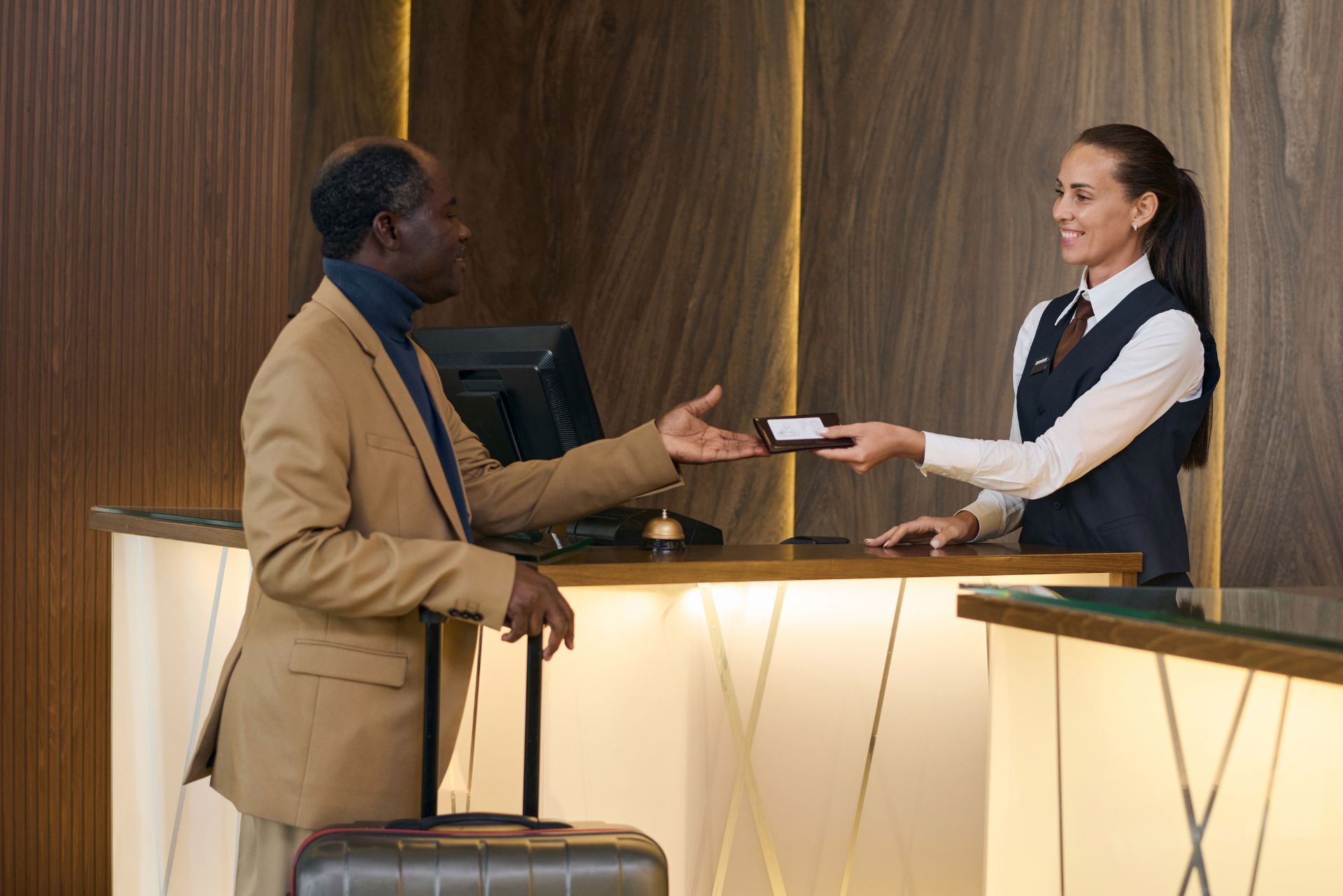Top 3 Recommended Policies

In the vibrant hospitality landscape of Florida, branded and chain hotels play a crucial role in attracting tourists and business travelers alike. However, with the opportunities that come with running a hotel also come various risks. This is where insurance becomes essential. Understanding the intricacies of Florida branded and chain hotels insurance is vital for hotel owners and managers to safeguard their investments and ensure smooth operations.
Understanding Hotel Insurance
Hotel insurance is a specialized form of coverage designed to protect hotels from a variety of risks. This insurance typically encompasses property damage, liability claims, and other unforeseen events that could disrupt business operations. For branded and chain hotels, the stakes are even higher due to their reputation and the standards they must uphold. The financial implications of a claim can be substantial, making it crucial for hotel owners to thoroughly understand their insurance needs and ensure they have adequate coverage to safeguard their investments.
The Importance of Insurance for Hotels
Hotels face numerous risks, from natural disasters to accidents involving guests. Without adequate insurance, a single incident could lead to significant financial loss. Insurance not only protects the physical assets of the hotel but also shields against potential lawsuits and claims that could arise from guest injuries or property damage. For instance, if a guest slips and falls in the lobby, the hotel could be held liable for medical expenses and damages, which could escalate quickly without proper liability coverage. Additionally, the reputational damage from such incidents can deter future guests, further compounding the financial impact.
Types of Insurance Coverage
When it comes to hotel insurance, there are several types of coverage that hotel owners should consider. These include:
- Property Insurance: Covers damage to the hotel building and its contents due to events like fire, theft, or vandalism.
- General Liability Insurance: Protects against claims of bodily injury or property damage that occur on the hotel premises.
- Business Interruption Insurance: Provides financial support in the event that the hotel has to close temporarily due to a covered loss.
In addition to these essential coverages, hotel owners might also want to explore specialized policies such as
liquor liability insurance, which is particularly important for establishments serving alcohol, and
cyber liability insurance, which protects against data breaches and cyberattacks. As hotels increasingly rely on technology for reservations and guest services, the risk of cyber threats has grown, making this coverage more relevant than ever. Furthermore, considering the unique features of each hotel, such as pools, spas, or restaurants, tailored coverage options can help address specific exposures and ensure comprehensive protection.

Specific Considerations for Florida Hotels
Florida's unique geographical location and climate present specific challenges that hotel owners must navigate. Understanding these factors can help in selecting the right insurance coverage. The state's vibrant tourism industry, fueled by its beautiful beaches, theme parks, and year-round warm weather, also means that hotels face intense competition and must prioritize guest safety and satisfaction.
Natural Disasters and Weather Risks
Florida is prone to hurricanes, tropical storms, and flooding. Hotels must be prepared for the potential impact of these natural disasters. Insurance policies should include coverage for wind damage, flood insurance, and other weather-related risks to ensure comprehensive protection. Additionally, hotels should develop robust emergency response plans that include evacuation procedures, staff training, and communication strategies to keep guests informed during a crisis. Investing in infrastructure improvements, such as storm-resistant windows and elevated buildings, can also mitigate damage and enhance guest safety.
Regulatory Compliance and Liability
In Florida, hotels must comply with various state and local regulations. This includes health and safety standards, which can affect liability insurance requirements. Ensuring compliance not only protects guests but also minimizes the risk of lawsuits and claims. Furthermore, hotels must stay updated on changes in legislation, such as those related to accessibility for individuals with disabilities or new health protocols stemming from public health concerns. Regular training sessions for staff on these regulations can foster a culture of safety and awareness, ultimately enhancing the guest experience and protecting the hotel's reputation.
Choosing the Right Insurance Provider
Selecting the right insurance provider is crucial for hotel owners. A knowledgeable provider can offer tailored solutions that meet the specific needs of branded and chain hotels. The right insurance not only protects the physical assets of the hotel but also safeguards the reputation and financial stability of the business, ensuring peace of mind for owners and operators alike.
Assessing Insurance Needs
Before choosing an insurance provider, hotel owners should conduct a thorough assessment of their insurance needs. This involves evaluating the size of the hotel, the number of guests, the range of services offered, and the specific risks associated with the location. For instance, hotels located in areas prone to natural disasters may require additional coverage for events such as floods or earthquakes. Furthermore, understanding the demographic of the clientele can also influence the type of coverage needed, as family-oriented hotels may face different liabilities compared to luxury resorts catering to high-end guests.
Understanding Policy Terms
It is essential to read and understand the terms of the insurance policy. Key aspects to consider include coverage limits, deductibles, exclusions, and renewal terms. A clear understanding of these elements can prevent unpleasant surprises in the event of a claim. Additionally, hotel owners should inquire about endorsements or riders that can be added to a policy for enhanced protection. For example,
coverage for business interruption can be vital, especially in times of crisis when revenue streams are disrupted. Engaging with an insurance expert can also provide insights into industry-specific risks and help in crafting a comprehensive insurance strategy that aligns with the hotel’s operational goals.
Cost Factors in Hotel Insurance
The cost of insurance for branded and chain hotels can vary widely based on several factors. Understanding these factors can help hotel owners budget effectively.
Location and Risk Assessment
The location of the hotel plays a significant role in determining insurance premiums. Hotels situated in high-risk areas, such as those prone to flooding or hurricanes, may face higher premiums. Insurers will assess the risk associated with the location before providing a quote. For instance, a beachfront property in a hurricane-prone region will likely incur higher costs compared to a hotel located in a more temperate, inland area. Furthermore, local crime rates can also influence premiums; hotels in areas with higher theft or vandalism rates may find themselves paying more for coverage. This risk assessment process is crucial for insurers, as it helps them gauge potential liabilities and adjust their pricing accordingly.
Hotel Size and Services Offered
Larger hotels with more amenities often face higher insurance costs due to the increased risk of claims. Additionally, hotels that offer specialized services, such as spas or restaurants, may require additional coverage, further impacting the overall cost. The complexity of operations in larger establishments can lead to a greater likelihood of incidents, whether it be slip-and-fall accidents in a busy lobby or food-related illnesses in an on-site dining facility. Moreover, hotels that host large events or conferences may need to consider event cancellation insurance, which adds another layer to their insurance needs. Each of these factors contributes to a more comprehensive risk profile that insurers must evaluate, ultimately affecting the premium rates charged to hotel owners.
Claims Process for Hotel Insurance
Understanding the claims process is essential for hotel owners to ensure they can navigate it smoothly when needed. A well-defined process can significantly reduce stress during challenging times. It is crucial for hotel owners to familiarize themselves with their specific policy details, as different providers may have varying requirements and procedures. This knowledge can empower owners to act swiftly and effectively when a claim needs to be filed, ultimately safeguarding their business and financial stability.
Steps to File a Claim
When filing a claim, hotel owners should follow a systematic approach:
- Notify the Insurance Provider: Contact the insurance provider as soon as possible to report the incident.
- Document the Incident: Gather evidence, including photographs and witness statements, to support the claim.
- Submit Required Documentation: Provide all necessary documents as requested by the insurer to facilitate the claims process.
Additionally, hotel owners should keep a detailed log of all communications with their insurance provider. This record can prove invaluable if any disputes arise or if clarification is needed regarding the status of the claim. Maintaining organized files of all related documents, such as invoices for repairs or loss assessments, can also streamline the process and help ensure that nothing is overlooked.
Common Challenges in the Claims Process
Hotel owners may encounter challenges during the claims process, such as disputes over coverage or delays in payment. Being proactive and maintaining clear communication with the insurance provider can help mitigate these issues. It is also beneficial for owners to be aware of common pitfalls, such as underreporting damages or failing to meet deadlines for documentation submission. Understanding the nuances of their policy can help hotel owners avoid these traps and ensure they receive the compensation they deserve.
Moreover, seeking advice from industry professionals, such as insurance brokers or legal advisors, can provide additional insights into navigating the claims process effectively. These experts can assist in interpreting policy language and advocating on behalf of the hotel owner, especially in complex situations where claims may be contested. By leveraging these resources, hotel owners can enhance their chances of a successful claims experience and minimize the potential for prolonged disruptions to their operations.

Best Practices for Managing Hotel Insurance
Effective management of hotel insurance can lead to better protection and potentially lower costs. Implementing best practices can enhance risk management strategies.
Regular Policy Reviews
Hotel owners should conduct regular reviews of their insurance policies to ensure they remain adequate as the business evolves. Changes in operations, property value, or local regulations may necessitate adjustments to coverage. Additionally, it is wise to stay informed about industry trends and emerging risks, such as cyber threats or natural disasters, which can impact insurance needs. Engaging with a knowledgeable insurance broker can provide valuable insights into the latest coverage options and help identify any gaps in existing policies.
Risk Management Strategies
Implementing risk management strategies can help reduce the likelihood of incidents that lead to claims. This includes staff training, regular maintenance, and safety inspections to ensure a safe environment for guests and employees. Furthermore, developing a comprehensive emergency response plan can significantly mitigate risks associated with unforeseen events. Regular drills and training sessions can prepare staff to handle emergencies effectively, ensuring that both guests and employees are protected. Additionally, investing in technology, such as surveillance systems and fire safety equipment, can further enhance security measures and demonstrate a proactive approach to risk management.
Conclusion
In the competitive landscape of Florida's hospitality industry, understanding branded and chain hotels insurance is crucial for success. By selecting the right coverage, managing risks effectively, and staying informed about industry trends, hotel owners can protect their investments and ensure a thriving business. Whether navigating the complexities of natural disasters or addressing liability concerns, comprehensive insurance coverage is an essential component of a successful hotel operation.
Contact Us


